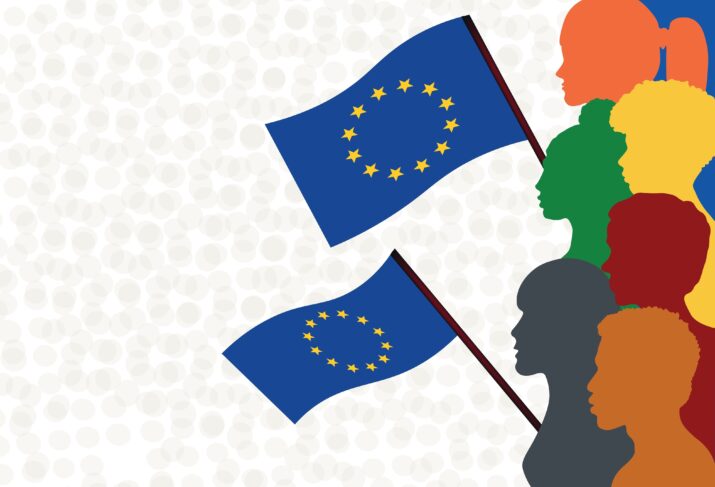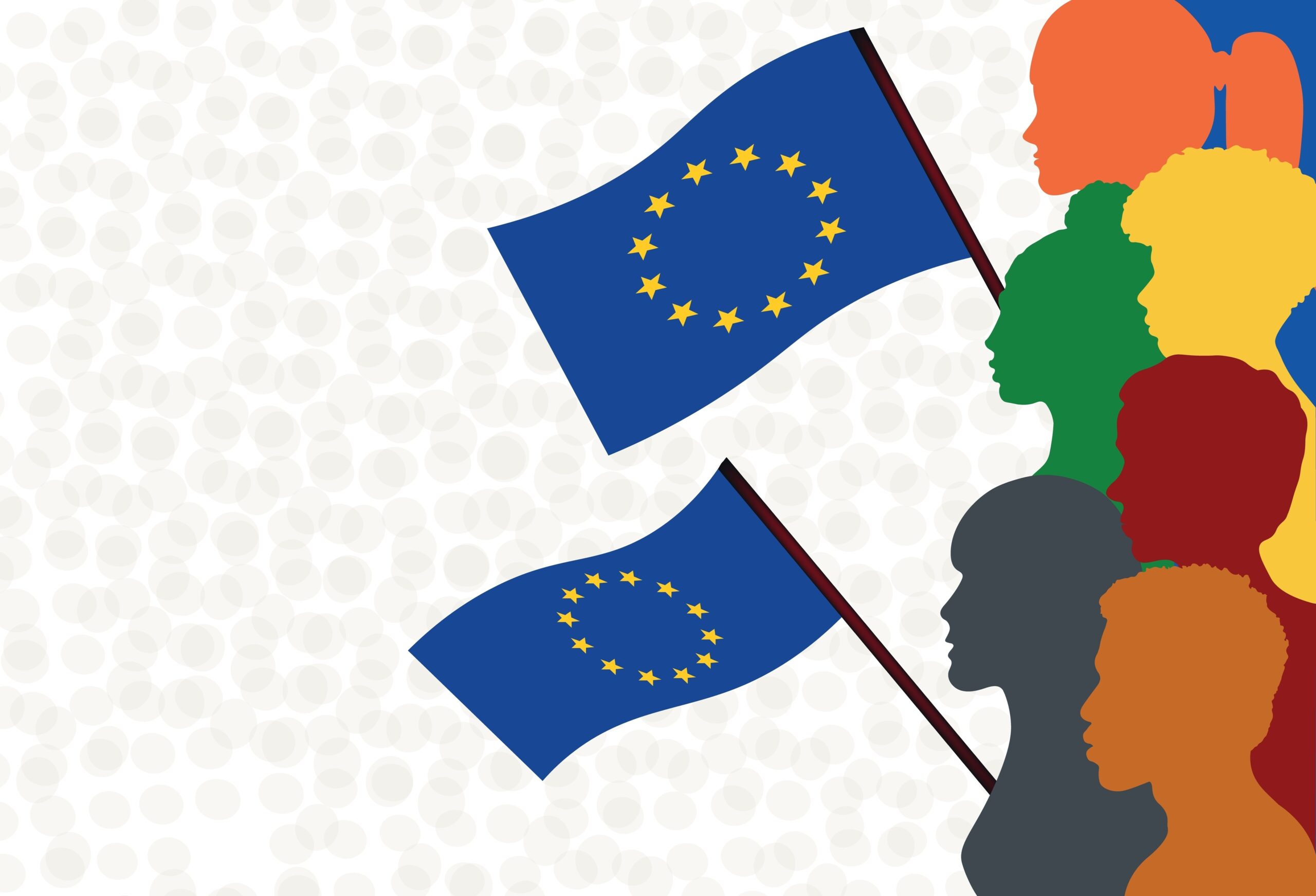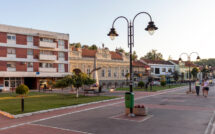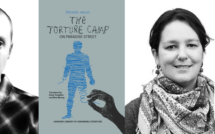

In recent years Europeans have increasingly voiced concerns about the high levels of migration their respective countries are experiencing. In 2015, almost a decade ago, the European Commission’s Eurobarometer poll indicated that 58 percent of Europeans thought of immigration as the most pressing issue for the European Union (EU) (Debomy and Tripier 2017). If we consider the latest Democracy Perception Index from 2023, which shows that Europeans want migration reduced more than any other people in the world (Kirez 2023), we can see that perceptions of immigration have not improved in Europe. Such expressions of dissatisfaction with the levels of immigration are nothing new. However, what is new is the increasingly widespread mainstreaming of this dissatisfaction by European politicians and the decisive steps many countries in Europe have taken to drastically reduce the number of immigrants allowed in.
Europe has faced a decade of demographic challenges such as an aging population; it has also faced several refugee crises, frequent Islamic terrorist attacks, reports of migrants drowning in the Mediterranean Sea as they attempt to cross it, and populist political narratives homing in on migrants as a major cause of problems in the continent. In this context, it is not surprising that Europeans have come to think of migration in terms of the negative consequences that it can bring (Kazmin, Fleming, and Minder 2022). Furthermore, politicians and talking heads from Paris to Palermo have added fuel to the fire by decrying the failures of once-championed multicultural policies as the main reason why so many newcomers have failed to integrate into European societies. In this essay, I explore the Europe-wide shift towards more restrictive immigration policies and the ways in which perspectives have changed to foster less tolerance towards immigration. This reality is uncomfortable, and facing it is long overdue, especially for those who believe in the many benefits that migration can bring and hope to find lasting solutions for the way forward.
At the end of October 2023, the leaders of Denmark, Norway, Sweden, Finland, and Iceland announced, with much fanfare, their intention to strengthen their cooperation in efforts to return illegal migrants to their respective countries of origin (Birkebaek 2023). Over the last decade, Scandinavian countries have been globally feted, and derided in equal measure, for their welcoming of millions of migrants and their struggles to integrate them into their respective populations. For example, migration has been blamed for Sweden currently having the highest level of gun murders in Europe (Sunnemark 2023), while the reintroduction of blasphemy laws in Denmark has been attributed to politicians there capitulating to the demands of Denmark’s growing Islamic migrant population (Inserra 2024).
Like in all European nations, high levels of migration in a relatively short period of time have had a massive impact in the Nordic countries. Sweden, once a bastion of peace and tranquility, has been shattered by imported gang violence, which has made it one of the most dangerous places in Europe, with the number of fatal shootings reaching an all-time high in 2023 (Sunnemark 2023). Because the foreign-born population in Sweden has surged from roughly 10 percent to 20 percent of the total population over the last decade (Dyvik 2023), many there place the blame on migrant populations, which are perceived as not integrated into Swedish society (Adamson 2020). Denmark, equally affected by gang violence, has grappled with Islamic extremists threatening violence on its streets. Moreover, fears have emerged in Denmark about the increasing ghettoization of migrant communities and growing political tensions about restrictions on the freedom of expression (Stehmann 2023). In 2023, Finland shut its border with Russia twice, denouncing its eastern neighbor for the “instrumentalization of immigration” at Russia sent hundreds of thousands of non-European migrants to cross into Finland. Finland has associated this movement of population as an attempt by Russia to destabilize Finnish society (Gera and Tanner 2023).
In Scandinavia, and Europe more broadly, public discontent about migration, a lack of effective integration policies, and rising intercommunity tensions have generally been confined to marginal discourse arenas and shadowy social media forums until recently (Walsh and Hill 2022). In various European countries, politicians, while slow to react to increasing levels of dissatisfaction about national migration regimes, now find themselves in a game of catch up with populist figures whose less than tolerant views on migration are becoming increasingly mainstream by the day. This mainstreaming has emboldened populations across the continent to further express their frustrations with what they perceive as increasing numbers of people from different cultures, who they see as undercutting their access to jobs, housing, healthcare, and other services (Banulescu-Bogdan 2022).
While there is no doubt that much of the backlash against immigrants is being stoked by extremist voices on social media, legitimate grievances are seldom given much countenance in other public media realms. In Ireland, the hesitation of mainstream media to criticize migration (mis)management was held up to sharp relief following the Dublin riots of November 23rd, 2023. Following the stabbing of three small children and their teacher outside a school in the center of the city by an Algerian immigrant (Mooney et al. 2023), far-right activists used social media to mobilize protestors within an hour of the incident (Sheahan and Mulhall 2023). The protests developed into riots that caused tens of millions of Euros in damage to the city’s infrastructure. While the damage was rightly lambasted in every corner of society, it was not difficult to find people willing to call out the vast majority of Irish politicians and the mainstream media for ignoring a tinderbox situation that sees an increasing number of asylum seekers being housed in Dublin’s mostly insalubrious neighborhoods. Furthermore, people accused the government of providing limited space for legitimate grievances, an accusation that was further amplified on social media platforms after the Irish government—including the Taoiseach (prime minister) at the time—responded to the riots by shaming the rioters (Gataveckaite 2023). Furthermore, following the riots and in the face of widespread global opposition, the Irish government appeared to grasp the opportunity to double down on its effort to criminalize “hate speech” with a proposal to introduce into law what has been described as one of the most draconian anti-hate speech laws in the world (O’Doherty 2023). While such a law may have a place in a modern society, major issues with the proposed bill have largely been ignored, such as Justice Minister Helen McEntee’s inability to define what constitutes “hate” in the proposal and the bill’s potential to stifle criticism of the government’s migration policies (Newsweek 2023).
Despite Ireland being one of the richest countries in the world (IMF 2023) and the fact that its open economy has benefitted greatly from migration (Deloitte 2022), the country is struggling to cope with the current levels of migration it is experiencing. Ireland has seen its population increase by 88,800 persons in 2022 alone,—the largest twelve-month increase since 2008 in that country, and the foreign-born population in Ireland currently comprises 20 percent of the total population (CSO 2023). This increase has overstretched public services (Cooper 2023) and led to a palpable feeling on the streets that things have changed too fast and that too little has been done to integrate newcomers. One recent national public opinion poll found that 75 percent of the population thinks the country has taken in too many refugees, and 76 percent believe that the public has legitimate concerns about asylum seekers being housed in their local areas (Brennan 2023).
One would be forgiven for thinking that the Dublin riots of November 2023 were a nadir from which Ireland’s modern migration story could turn itself around. Unfortunately, this has not been the case with the most recent (at the time of writing) scandal concerning hundreds of migrant men, who after arriving in the country in the midst of one of Europe’s worst housing crises, organized a shanty-like tent encampment outside the government’s international protection office (BBC 2024). After much unwelcome attention from the international media, the encampment was dismantled and the migrants ushered out of the city center far from the media’s glare. To cut a long and troubling story short, the migrants soon returned to the city center and established their tents along the Grand Canal in one of Dublin’s most chic neighborhoods. To the surprise of very few, the Department of Integration quickly removed most of the migrants to emergency housing farther out of the city center and sealed off the Grand Canal with steel fencing (McCauley 2024).
These types of migration management fiascos are far from being confined to Ireland and Scandinavia. As was evidenced in the European Commission’s Special Eurobarometer Report on the Integration of Immigrants in 2017, only half of all Europeans thought their respective governments were doing enough to integrate immigrants (Special Eurobarometer Report 2017). In 2023, six years later, populist parties have had political wins in Italy, Slovakia, Sweden, and the Netherlands, not to mention expected future political gains for far-right populist leaders such as France’s Marine Le Pen (Keiger 2023) or Germany’s Alice Weidel (Weider 2023). Indeed, it seems that Europeans are in the continent-wide throes of a major backlash against the migration policies laid out by political leaders up to this point.
With opinion poll after opinion poll revealing that Europeans want stricter limitations on the number of people allowed to immigrate to their respective countries, if not outright bans against immigration altogether (Migration Data Portal 2023; Connor and Krogstad 2018; Schaart 2018), political leaders who put voice and action to these concerns are rising to the fore. From Georgia Meloni in Italy to Geert Wilders in the Netherlands, one has to wonder if Europeans are getting the leaders they deserve. Whether such politicians and policy makers are merely echoing populist sentiments in their constituencies or beginning to put forward some much-needed solutions is debatable. What is not debatable is that very difficult and long overdue conversations about migration are currently being had in every part of Europe.
Chief among these conversations is that on the abject failure of integration policies geared towards migrants from vastly different cultures and socio-political realities than the receiving countries in which they settle. Migrants are not a homogeneous group, as they do not all come to European countries with the same cultural beliefs and practices (Ramos et al. 2018); therefore, a one-size-fits-all approach has not been, and cannot be, the solution to integrating them into the wider society. However, what has been relatively homogenous is the widespread and overarching adherence to a multicultural philosophy of integration across much of the continent. This philosophy institutionalizes group differences in the hope that individual communities can co-exist harmoniously (Malovic and Vujica 2021). While this may be plausible for communities with negligible differences in values and beliefs, it is far less likely to work when differences, or perceived differences, are extreme enough that it makes it possible for some to avoid adjusting themselves to the wider social norms of the society in which they live (Kim 2016).
Although European governments have had good intentions to welcome newcomers, critics have blamed multicultural policies—and the philosophy behind them— for entrenching division along ethnic, racial, religious, and national lines (MPI 2023). Despite multiculturalism being currently influential in integration policies across the continent, the fact that it encourages different groups to live in different ways is increasingly scrutinized. For example, there are currently approximately 85 Sharia councils in the UK that run parallel to the UK court system. While these customary courts address mostly dispute resolutions and are unable to override UK law, the very fact that a separate legal system exists for a specific religious group in a modern European country runs counter to what a cohesive society should be and arguably does little to enable those who rely on this parallel legal system to fully take part in the wider society (Kassam 2017). The case of Islamic—or “nikah” only—marriages highlight the incongruity of Islamic cultural practices with secular UK legal practices. According to Vora (2020), as much as 80 percent of Muslims who have “married” in England and Wales have not registered their weddings under British civil law. In cases of marital breakdown, this absence of civil registration has massive ramifications for Muslim women, who often face unequal treatment in Sharia courts but have no recourse under British civil law (Kemp n.d.).
According to its critics, multiculturalism has inspired policies that exonerate immigrants from integrating into the wider society and has resulted in an erosion of social cohesion, an undermining of national identities, and a degradation of public trust (Malik 2015). Furthermore, critics also claim that multiculturalism creates a situation in which members of society do not all face the same standards of behavior, as it provides excuses for egregious behaviors within specific communities. As a result, populations may become demoralized, and events such as teachers being murdered by Islamic extremists (Willsher 2020) or synagogues being firebombed rarely elicit more than a day or two’s headlines in the media outside of the countries where these events have taken place (Hulsemann 2023).
Is the migration dream over in Europe? Considering the current anti-immigration European zeitgeist, it seems reasonable to assume that it is. At the very least, future migration policies and practices must be different than today’s for a peaceful and prosperous tomorrow. The necessity for change has become increasingly evident and harder to ignore with the rise of political leaders who anchor their election strategies on intercommunity tensions and threats of even more divisions in the future. In light of such negative social forces, perhaps Europeans should explore how to best integrate migrant communities to restore a stronger sense of social cohesion in European countries.
As Europe struggles to come to terms with the many social, economic, and cultural challenges that high levels of migration have brought, Europeans should not forget that most migrants have come to Europe holding the same values they hold so dearly themselves. By renewing their confidence in what makes Europe a great place to live in and demanding that all who live there adhere to the same values of human dignity, freedom, democracy, equality, the rule of law, and human rights, Europeans can aim to ensure that justice, fairness, and balance are part of the needed conversations.
Paul O’Keeffe is Assistant Professor of Global Challenges at Dublin City University. He has extensive experience in researching, developing, and enabling education and development projects in refugee camps in East Africa and the Middle East.
References
Adamson, Göran. 2020. “Migrants and Crime in Sweden in the Twenty-First Century.” Society 57 (1): 9–21. https://doi.org/10.1007/s12115-019-00436-8 .
Banulescu-Bogdan, Natalia. 2022. “From Fear to Solidarity the Difficulty in Shifting Public Narratives about Refugees.” https://www.migrationpolicy.org/sites/default/files/publications/refugee-narratives-report-2022_final.pdf
BBC (2024) Dublin asylum seekers moved from Mount Street tents, www.bbc.com. Available at: https://www.bbc.com/news/articles/c4n14g8xqnyo.
Birkebaek, Johannes. 2023. “Nordic Countries to Cooperate More on Returning Migrants to Countries of Origin.” Reuters, October 31, 2023, sec. Europe. https://www.reuters.com/world/europe/nordic-countries-cooperate-more-returning-migrants-countries-origin-2023-10-31/
Brennan, Michael. 2023. “Analysis: Three Quarters of People Think Ireland ‘Taking in Too Many Refugees.’” Business Post. 2023. https://www.businesspost.ie/politics/three-quarters-of-people-think-ireland-taking-in-too-many-refugees/
Bryant, Miranda. 2023. “Sweden Reports Record Number of Monthly Fatal Shootings.” The Guardian, September 28, 2023, sec. World news. https://www.theguardian.com/world/2023/sep/28/sweden-records-record-high-number-of-shooting-deaths-in-september
Central Statistics Office. 2022. “Key Findings – CSO – Central Statistics Office.” Www.cso.ie. August 24, 2022. https://www.cso.ie/en/releasesandpublications/ep/p-pme/populationandmigrationestimatesapril2022/keyfindings/
Connor, Phillip, and Jens Manuel Krogstad. 2018. “Many Worldwide Oppose More Migration – Both into and out of Their Countries.” Pew Research Center. December 10, 2018. https://www.pewresearch.org/short-reads/2018/12/10/many-worldwide-oppose-more-migration-both-into-and-out-of-their-countries/
Cooper, Ivan. 2023. “Opinion: Ireland Relies Heavily on the Community and Voluntary Sector – It Is at Breaking Point.” TheJournal.ie. September 18, 2023. https://www.thejournal.ie/readme/charity-funding-cuts-6169752-Sep2023/
Debomy, Daniel, and Alain Tripier. 2017. “European Public Opinion and the EU Following the Peak of the Migration Crisis Table of Contents.” https://institutdelors.eu/wp-content/uploads/2018/01/europeanpublicopinionandtheeu-debomy-june2017.pdf
Deloitte. 2023. “The Benefits of Encouraging an International Workforce to Come Here.” Deloitte Ireland. 2023. https://www2.deloitte.com/ie/en/pages/tax/articles/the-benefits-of-encouraging-an-international-workforce-to-come-here.html
Gataveckaite, Gabija. 2023. “Taoiseach on Rioters: ‘We Are Going to Get Them’ as He Says Gardaí Responded ‘Extremely Quickly.’” Independent.ie. November 24, 2023. https://www.independent.ie/irish-news/politics/taoiseach-on-rioters-we-are-going-to-get-them-as-he-says-gardai-responded-extremely-quickly/a314483851.html#:~:text=Mr%20Varadkar%20said%20the%20%E2%80%9Cfull
Gera, Vanessa, and Jari Tanner. 2023. “Why Finland Is Blaming Russia for a Sudden Influx of Migrants on Its Eastern Border.” AP News. November 25, 2023. https://apnews.com/article/finland-russia-migrants-border-nato-eu-0e1ba68a783e3aa392539074c4dc39e1
Hulsemann, Laura. 2023. “Berlin Synagogue Firebombed: Olaf Scholz Condemns Attack.” POLITICO. October 18, 2023. https://www.politico.eu/article/germany-chancellor-olaf-scholz-condemn-synagogue-attack-berlin/
Ian, O’Doherty. 2023. “After the Dublin Riot, the Free-Speech Crackdown.” Www.spiked-Online.com. 2023. https://www.spiked-online.com/2023/11/28/after-the-dublin-riot-the-free-speech-crackdown/#:~:text=Ian%20O
IMF. 2023. “Https://Www.imf.org/External/Datamapper/Profile/IRL.” Www.imf.org. 2023. https://www.imf.org/external/datamapper/profile/IRL
Inserra, David. 2024. “The Return of Blasphemy and Sacrilege Laws in the Most Unlikely
Places.” Cato.org. 2024 https://www.cato.org/blog/return-blasphemy-sacrilege-laws-mostunlikely-places
Kassam, Raheem. 2017. No Go Zones. Simon and Schuster.
Kazmin, Amy, Sam Felming, and Raphael Minder. 2022. “Migration Fatigue: Europe Braces for New Influx of Ukrainians.” Financial Times, December 11, 2022. https://www.ft.com/content/cf00788c-2799-4d4e-9158-666d1a31ca26
Keiger, John. 2023. “The French Elite Have Realised That Marine Le Pen Might Win.” The Spectator. December 10, 2023. https://www.spectator.co.uk/article/the-french-elite-have-realised-that-marine-le-pen-might-win/
Kemp, Poppy. n.d. “Nikah Marriages and Their Impact on Muslim Women – Poppy Kemp (per Incuriam) | Cambridge University Law Society (CULS).” Www.culs.org.uk. Accessed February 28, 2024. https://www.culs.org.uk/per-incuriam/nikah-marriages-and-their-impact-on-muslim-women
Kim, Steven. 2016. “Complex Factors behind Misguided Policies in Socioeconomics: From Mass Migration and Persistent Alienation to Rampant Crime and Economic Malaise.” Mpra.ub.uni-Muenchen.de. September 1, 2016. https://mpra.ub.uni-muenchen.de/76733/
Kirez, Timo. 2023. “Austria Is the Most Anti-Immigration Country in the World: Survey.” Www.aa.com.tr. 2023. https://www.aa.com.tr/en/world/austria-is-the-most-anti-immigration-country-in-the-world-survey/2893984
Kenan Malik, “The Failure of Multiculturalism: Community versus Society in Europe,” Foreign Affairs 94, no. 2 (March/April 2015): 21-32
Malović, Nenad, and Kristina Vujica. 2021a. “Multicultural Society as a Challenge for Coexistence in Europe.” Religions 12 (8): 615. https://doi.org/10.3390/rel12080615
McAuley, E. (2024) Some asylum seekers told to get bus to tented IPAS site, while others left by Grand Canal, TheJournal.ie. Available at: https://www.thejournal.ie/asylum-seekers-grand-canal-6385177-May2024/
MDI. 2023. “Public Opinion on Migration.” Migration Data Portal. 2023. https://www.migrationdataportal.org/themes/public-opinion-migration
Melander, Ingrid. 2023. “Prosecutor Opens Probe over Antisemitic Chants in Paris Metro .” 2023. https://www.reuters.com/world/europe/prosecutor-opens-probe-over-antisemitic-chants-paris-metro-2023-11-01/
MPI. 2023. “The MCP Index Project | Multiculturalism Policies in Contemporary Democracies.” Www.queensu.ca. 2023. https://www.queensu.ca/mcp/about
Newsweek. 2023. “Ireland Must Say No to Orwellian ‘Hate Speech’ Laws.” Newsweek. December 8, 2023. https://www.newsweek.com/ireland-must-say-no-orwellian-hate-speech-laws-opinion-1850546
O’Donoghue, John Mooney, Claire Scott, Julieanne Corr, Patrick. 2023. “Dublin Stabbing: Victim Is from Migrant Family.” Www.thetimes.co.uk, December 23, 2023, sec. Ireland. https://www.thetimes.co.uk/article/dublin-stabbing-victim-is-from-migrant-family-3nw0fsppv
Ramos, Gabriela , Ludger Schuknecht, Andreas Schleicher, and Stefano Scarpetta. 2018. “Why We Should Dispel the Myth of Migrants as a Homogeneous Group.” OECD Education and Skills Today. October 29, 2018. https://oecdedutoday.com/why-we-should-dispel-the-myth-of-migrants-as-a-homogeneous-group/
Schaart, Eline. 2018. “Most Europeans Want Less Migration: Survey.” POLITICO. December 10, 2018. https://www.politico.eu/article/europe-migration-survey-most-europeans-want-less-migration-survey/
Sheahan, Fionnan, and Garrett Mulhall. 2023. “Dublin Riots: Expert Reveals How Far Right Whipped up Anti-Immigrant Mob within Hour of Parnell Square Stabbings.” Independent.ie. November 28, 2023. https://www.independent.ie/irish-news/dublin-riots-expert-reveals-how-far-right-whipped-up-anti-immigrant-mob-within-hour-of-parnell-square-stabbings/a1000595200.html
Special, Eubarometer. 2017. “Special Eurobarometer 469.” https://www.migrationsenquestions.fr/content/uploads/2019/09/EuroBarometer-IntegrationOfMigrantsintheEU_469_April2018_p12.pdf
Spiked Online. 2023. “After the Dublin Riot, the Free-Speech Crackdown.” Www.spiked-Online.com. 2023. https://www.spiked-online.com/2023/11/28/after-the-dublin-riot-the-free-speech-crackdown/
Steahmann, William. 2023. “Why We Should Be Thankful for ‘Greedflation’ | Benjamin Seevers.” Fee.org. November 28, 2023. https://fee.org/articles/why-we-should-be-thankful-for-greedflation/
Sunnemark, Viktor. 2023. “How Gang Violence Took Hold of Sweden – in Five Charts.” The Guardian, November 30, 2023, sec. World news. https://www.theguardian.com/world/2023/nov/30/how-gang-violence-took-hold-of-sweden-in-five-charts
Walsh, James P, and Dallas Hill. 2022. “Social Media, Migration and the Platformization of Moral Panic: Evidence from Canada.” Convergence: The International Journal of Research into New Media Technologies, October, 135485652211370. https://doi.org/10.1177/13548565221137002
Weider, Thomas. 2023. “Germany’s Far-Right AfD Party Makes Gains, in Major Setback for Olaf Scholz’s SDP.” Le Monde.fr, October 9, 2023. https://www.lemonde.fr/en/international/article/2023/10/09/germany-s-far-right-afd-party-makes-gains-in-major-setback-for-olaf-scholz-s-sdp_6158832_4.html
Willsher, Kim. 2020. “Macron Speaks of ‘Existential’ Fight against Terrorism after Teacher Killed in France.” The Guardian, October 17, 2020, sec. World news. https://www.theguardian.com/world/2020/oct/16/french-police-shoot-man-dead-after-knife-attack-near-paris-school
Published on June 17, 2024.




